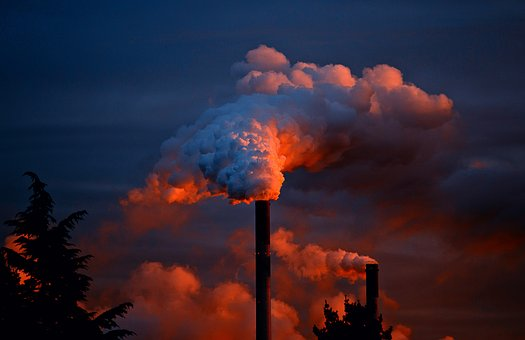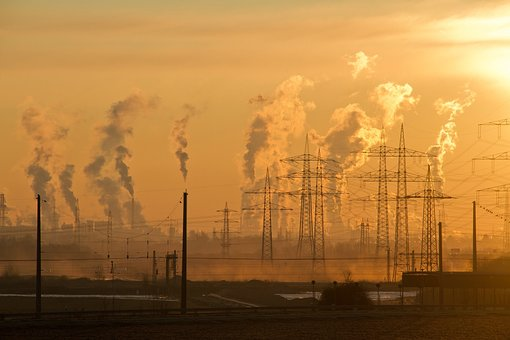greetings to all,
I am back with another blog for everyone.
Let us learn about industrialization and it's impact on nature.
Industrialization has brought about significant advancements in various areas, including technology, transportation, and communication. The mass production of goods and services, however, has also led to an increase in pollution and environmental degradation, contributing to natural disasters.
In this blog, we will discuss the impact of industrialization on natural disasters and explore how we can mitigate these risks.

Natural disasters such as floods, droughts, wildfires, and hurricanes have become more frequent and intense due to climate change. Industrialization is one of the major contributors to climate change, as the burning of fossil fuels releases greenhouse gases that trap heat in the atmosphere, leading to global warming.
The increase in global temperatures, in turn, causes more extreme weather patterns, resulting in natural disasters. Additionally, industrialization has also led to deforestation, which further exacerbates the effects of climate change.

In addition to climate change, industrialization has also contributed to natural disasters through various forms of pollution. For example, air pollution caused by industrial activities such as manufacturing and transportation can lead to respiratory diseases and other health issues.
Pollution can also lead to acid rain, which can damage crops, forests, and bodies of water. Water pollution caused by industrial waste can contaminate drinking water sources, leading to waterborne diseases and other health problems.
One of the most significant environmental disasters caused by industrialization was the 1984 Bhopal gas tragedy, which occurred in Bhopal, India. The tragedy was caused by the release of toxic gas from a pesticide plant owned by Union Carbide, which resulted in the death of thousands of people and left many others with chronic health issues.
To mitigate the impact of industrialization on natural disasters, it is important to reduce the use of fossil fuels and promote the use of clean, renewable energy sources such as wind and solar power. In addition, governments and industries should work together to develop more sustainable production processes and reduce waste and pollution.
This can be achieved through the implementation of regulations and policies that promote sustainability and environmental protection.
Individuals can also play a role in mitigating the impact of industrialization on natural disasters by adopting eco-friendly habits such as reducing their carbon footprint, conserving water, and reducing waste.
This can be achieved through simple actions such as using public transportation, turning off lights and appliances when not in use, and recycling.

In conclusion, industrialization has had a significant impact on natural disasters, primarily through its contribution to climate change and pollution. However, with a concerted effort to promote sustainability and environmental protection, we can mitigate these risks and create a more sustainable future.
By reducing our dependence on fossil fuels, promoting clean energy sources, and adopting eco-friendly habits, we can help to reduce the impact of industrialization on natural disasters and create a more sustainable future.
thank you
Greetings
Beautiful article. Please do not forget to support other Blurtconnect publications.
Thank you for more engagement on posts in the Blurtconnect community.
Upvotes are regularly obtained on posts published by authors that engage with fellow Blurtians through comments under articles.
You can enjoy a friendly dialogue with Blurtians Here
Your vote, by clicking here, will mean a lot to the blurtconnect-ng Witness team
Peace
Posted from https://blurtlatam.intinte.org